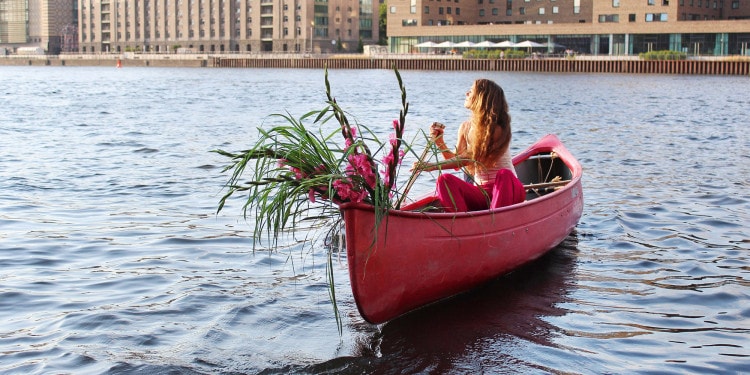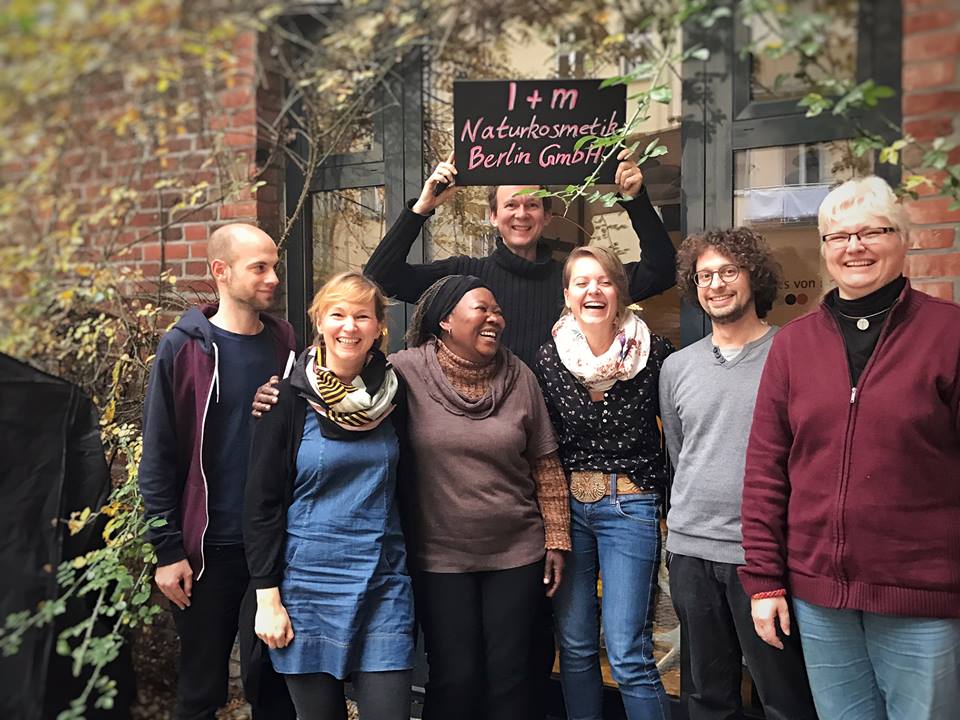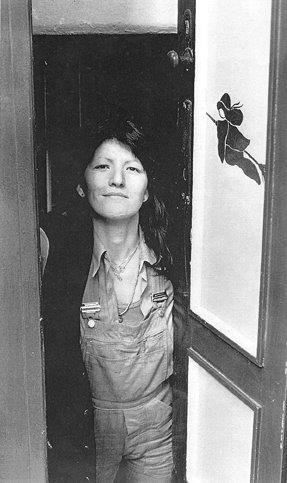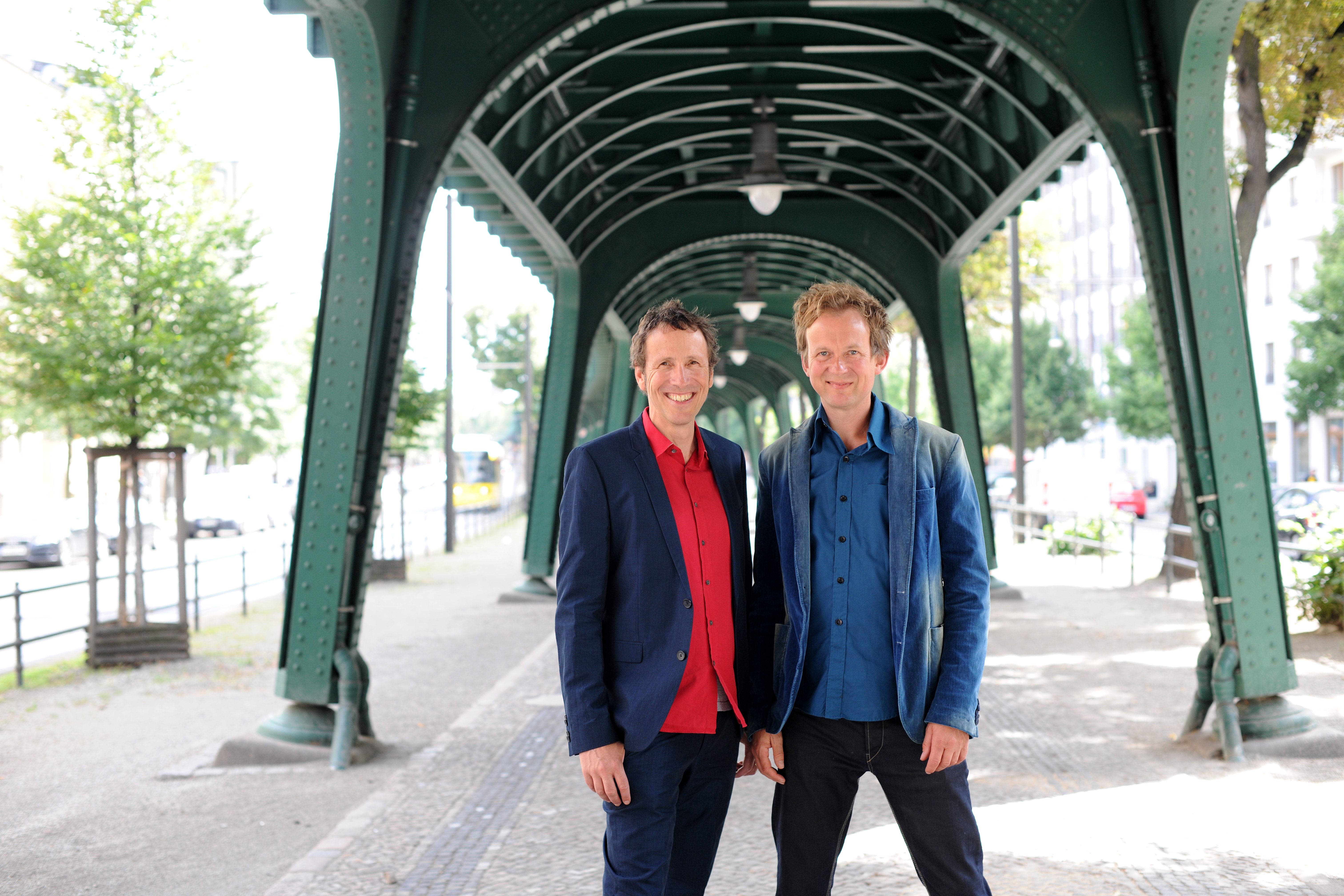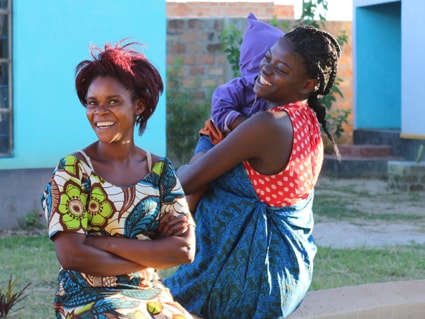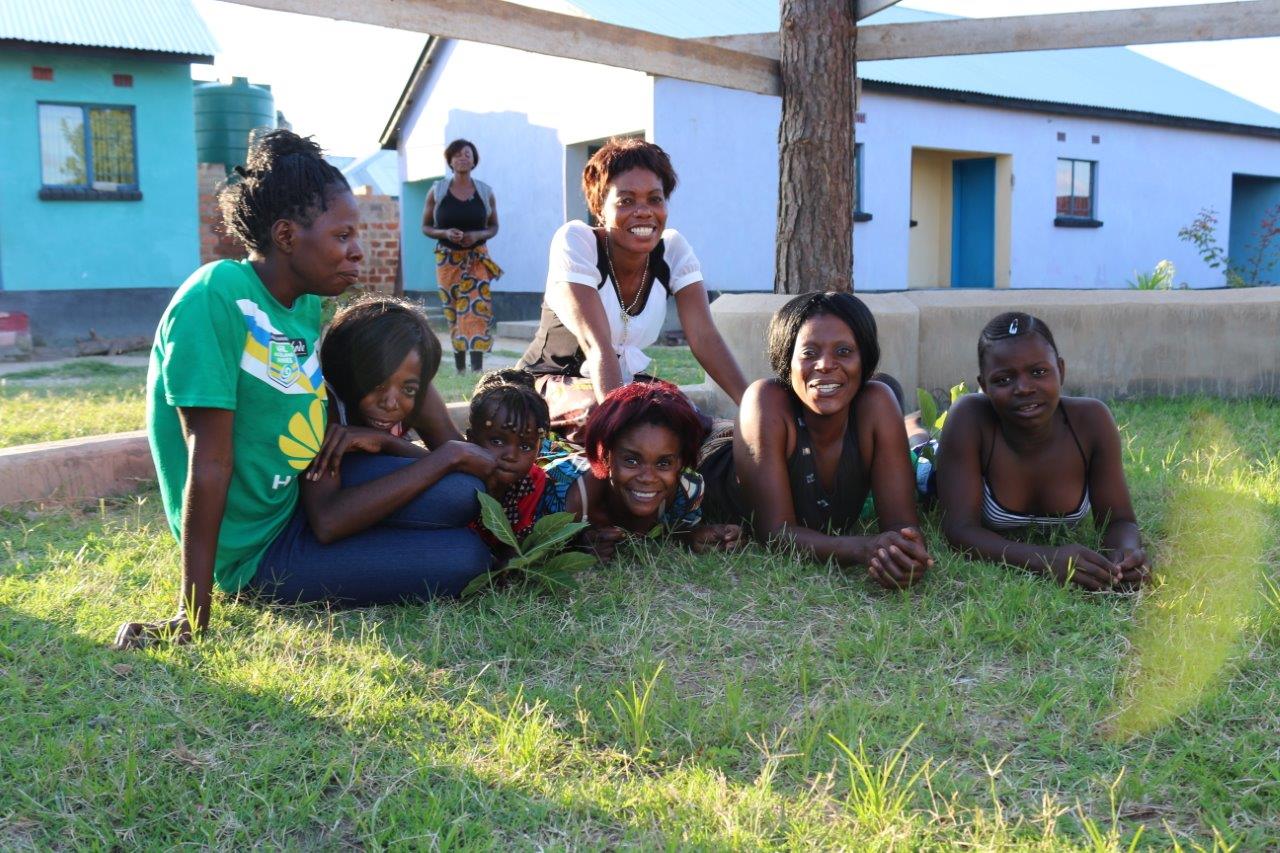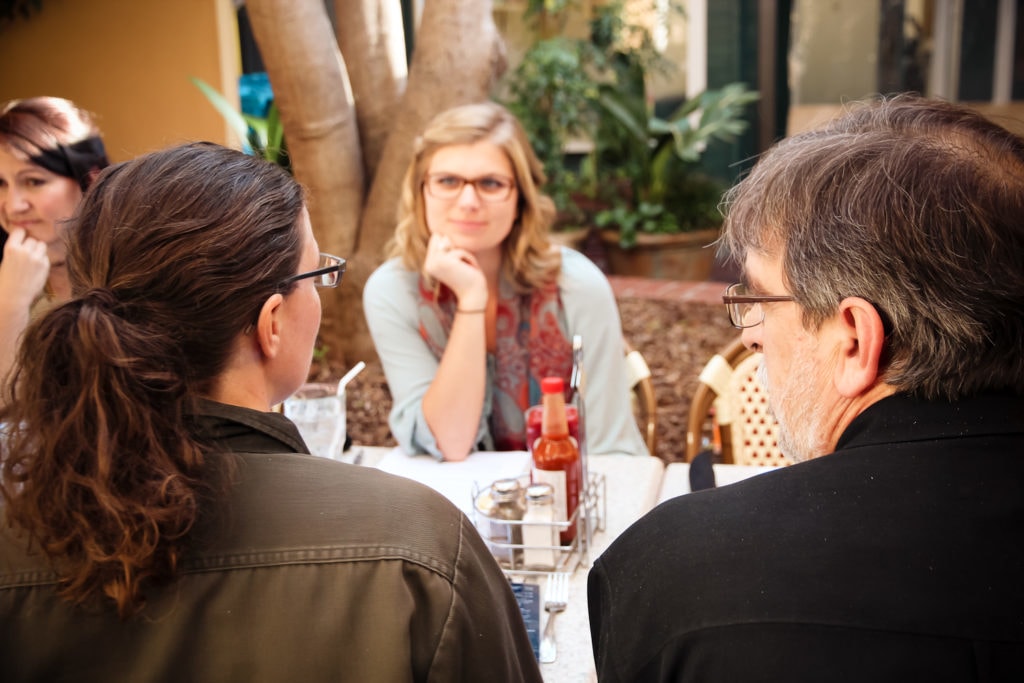Skin care companies aren’t often associated with philanthropic causes and being drivers of social change. However, there is a quiet revolution that is taking hold in the natural cosmetics field and it needs to be brought to the public’s attention.
To be a successful company today requires more than just good returns and satisfied consumers. You have to be a ‘world-improver’ to really be considered as a business that has left a positive mark. One of these companies is i+m, a natural skin-care company that is sharing its profits and creating better lives for those who are worse off.
I spoke to Jörg von Kruse, Managing Director of i+m, to find out more on the company, its challenges and current projects.
IN THE PHOTO: The I+M Family Portrait CREDIT: I+M
Q. How was i+m born?
In 1978, Inge Stamm developed and produced the first natural skincare products. As a midwife she observed how newborn babies increasingly began to react to the standard care products. This is why, 40 years ago, she began developing a new range of cosmetics without preservatives, mineral oils or synthetic ingredients. Her three different career paths – chemist, midwife and naturopathic practitioner – gave her an in-depth understanding of the effect of nature on people.
You know, in 1978, those choosing to lead an environmentally conscious and sustainable lifestyle were still exceptions, and finding natural, organically produced raw ingredients was a challenge. Inge Stamm’s pioneering work paved the way for the development – and modern understanding – of natural cosmetics.
Q. When did you join i+m and what was your motivation?
In 2007, i+m was facing a serious economic crisis. Inge Stamm was looking for a business consultant and approached us. Back then, me and my best friend Bernhard von Glasenapp worked as lawyers in the field of commercial law and business consultancy. After a decade working in this branch, we got to a stage where we started to question conventional business models. After the first meeting with Inge Stamm, we were already convinced that we wanted to help map the future of the firm. Driven by our personal credo of trying to live in a more sustainable and environmentally conscious way we wanted to realise these values in our own company. When Inge Stamm offered us the opportunity to become business partners it felt like a natural match. Inge Stamm retired in 2013.
What has changed since then?
For us, the vision of a sustainable economy that protects and conserves our environment and natural resources demands not only environmental awareness: we have to change our economic structures by moving away from egoism and competition, towards a fair mode of interaction that is aimed at the common good.
So we began to place even greater emphasis on sustainability and public welfare, alongside its established ecological and vegan orientation. In this spirit i+m opened the first women’s shelter in the Republic of Zambia in 2014, started donating 40% of the company’s profits to charitable ecological-social projects, and introduced a (new, comprehensive) employee profit-sharing scheme.
IN THE PHOTO: Inge Stamm CREDIT: I+M
Q. How does i+m incorporate sustainability?
The term “sustainability” covers not only resource optimization and nature conservation issues but also social and economic factors. We at i+m try to incorporate the idea of sustainability on all levels: We rely on controlled organic cultivation, our products don’t contain harmful ingredients such as silicones, paraffins, phthalates and microplastic beads or genetically modified ingredients.
We have a sustainable, cradle to cradle inspired packaging concept without outer packaging. We don’t test on animals or use animal tested substances. We pay our suppliers fair prices for their precious raw materials and their good work.
Forty percent of our profits go into environmental, animal welfare and social projects. One of our main projects is the first, financed by i+m but autonomously and locally run, woman’s shelter in Zambia, Africa. We decline predefined stereotype beauty ideals, don’t promote unrealistic product promises and offer a fair price to our customers, maximizing profit is NOT our priority.
All of our employees are involved in the fundamental business decisions. We advocate a discursive business culture that is based on independent, responsible work and flat hierarchies. Our employees have access to all the key business figures and are given an equal share of the profits.
In the photo: Jörg von Kruse and Bernhard von Glasenapp Credit: i+m
Q. How did you encounter and manage such a variety of raw materials from so many countries?
We are definitely influenced by innovations and trends in the cosmetic industry (plus food industry) and do research on new raw materials but most of the time our suppliers inform us about new raw materials and their active substances directly. We have long term cooperations, with most of our suppliers. Some of them already started with Inge Stamm years ago. Our supplier’s materials are of superb quality and cooperations are based on mutual trust. A way to connect with new suppliers is through branch specific-trade fairs like “Biofach” which takes place in Nuremberg and India. For example, that’s were we met our supplier of fair trade coconut oil from Kerala.
Q: Please tell us more about your fair editions?
The FAIR Editions idea was born out of the wish to support small, eco-fair start-up projects (In a manner of the crowd funding principle, i.e. many individuals finance a project together – in our case by buying the FAIR Edition).
That’s how it works: we find a project that’s worthy of support and that corresponds with us and our values. We then create and produce a FAIR Edition for it, with all expenses on us. We sell it in our shop and offer it to our traders.
We all donate our trade margin and together we advertise the product to enhance publicity and raise the level of awareness about the project. After the sale, 100% of the proceeds go straight from i+m to the project. Usually the FAIR Editions got a sales value of approximately 10.000 Euro. That’s a significant amount of money for small projects and a substantial contribution to further develop wonderful ideas and projects. And everyone is a winner, cause together we are strong!
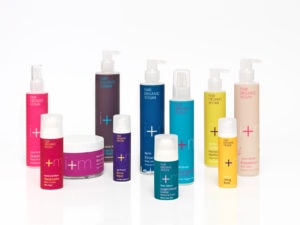
In the photo: i+m Fair Edition products Credit: i+m
Q. What are the main challenges i+m is faced with?
The fast-changing organic and natural cosmetics market presents us with major challenges. In Germany most people buy care products at the drugstore and that’s where natural cosmetics are drifting to. Back in the days you could only buy natural cosmetics in health food stores and specialised shops. This has changed in the last couple of years, plus conventional supermarkets try to get a foot in the market as well because natural cosmetics are booming.
They target consumers inclined to buy organic and therefore they need to stock brands like i+m NATURKOSMETIK BERLIN that represent certain ethical values.
i+m has become quite popular lately, mainly because the brand stands for sustainability on many levels including social justice and animal rights. That’s a good thing, don’t get me wrong, but very controversial at the same time.
These days new trade partners might be more interested in listing a “green brand” for marketing reasons rather than quality reasons and even sales numbers, or, because they have the same values and interest in sustainability etc.
Q. How do you overcome these challenges?
Well, if we were primarily driven by making profit we would be in a great position. But our goals are to produce high quality and natural cosmetics and to promote other values than ‘profit only’. It’s a tricky one. Honestly, i+m would not be able to survive without the big players on the market. We might have opposite goals but we benefit from these trading partners by getting the chance to introduce ourselves – our products and our philosophy – to a new consumer group that usually buys conventional cosmetics only.
Before we decide to cooperate with new traders we do our homework and evaluate properly. We are glad that there are corporations like dm, the leading drug store chain in Germany. dm is truly committed to ecology and social justice in many areas. 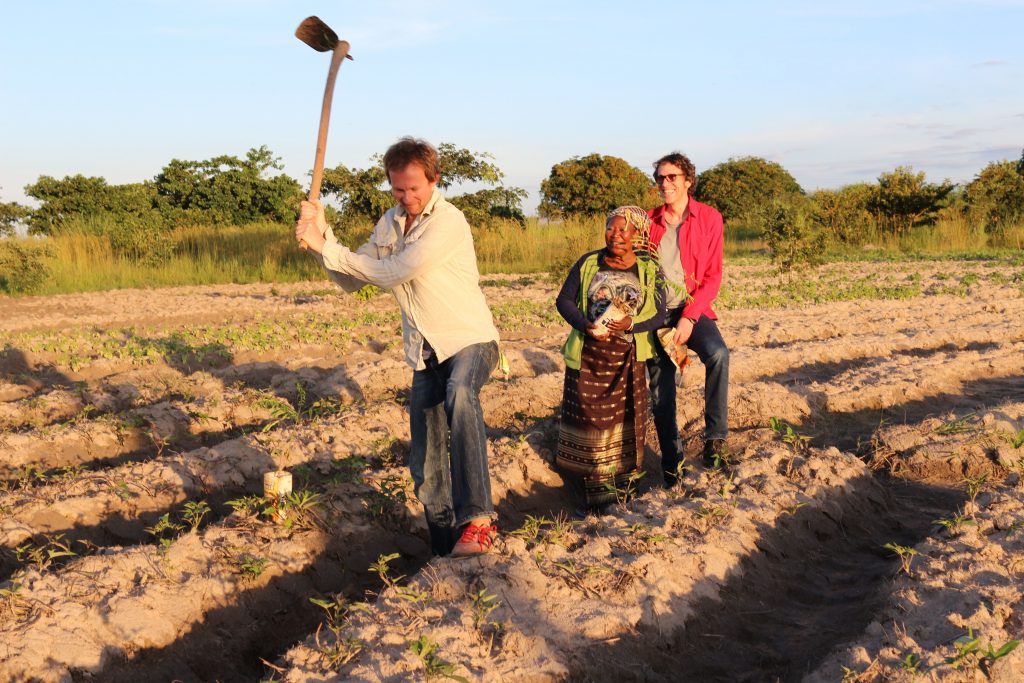
In the photo: Bernhard von Glasenapp (left) and Jörg Kruse (hr) pack energetically Credit: i+m
Q. How do you intend to improve women’s conditions through your new charity association “women’s shelter Zambia”?
Actually it’s not a new project, we already started in 2013. Our aim is to launch an Africa wide movement to combat violence against women in all its forms and to find solutions for the very uncertain situation of the women in Zambia.
As a first step to achieving this, we partnered with a local resident in Zambia to establish the first women’s shelter. In August 2014, the first women moved into the shelter. It presently provides a home to about one hundred women and their children every year.
In 2015, the shelter reached a milestone by establishing a mini farm to enable the residents to grow their own fruits and vegetables while training their farming skills. In addition, working outdoors and in nature creates an environment which best enables women to work through their traumas. We also managed to set up a school room for the kids a while ago. Bernhard visits the shelter on a regular basis to see what the women need.
Editors Note: The opinions expressed here by Impakter.com columnists are their own, not those of Impakter.com


